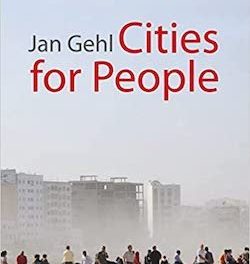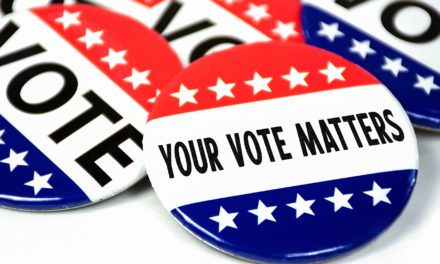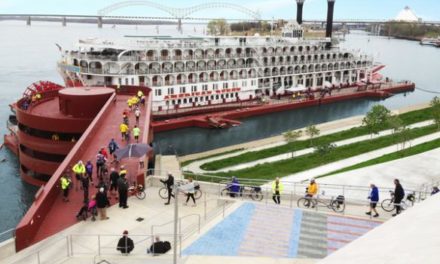Relationships run a lot smoother when money worries are lessened.
That’s one of the takeaways from the most uneventful City of Memphis budget hearings in more than 10 years.
More than anything, the budget hearing were a victory for Mayor Jim Strickland and a significant example of his management style. In the end, he received essentially everything he had requested in his proposed budget, and he got it without the rancor and contentiousness that had characterized the budget hearings for the Wharton Administration.
Except for some minor bumps in the road along the way, the budget process ran smoothly under the leadership of budget committee chairman Edmund Ford. He’s been one of the best thinkers on city budgets in recent years – and some of his budget recommendations in previous years were far superior to the ones that ultimately passed – but he rarely gets the credit he deserves.
A Lower Temperature
Undoubtedly, Mayor Strickland’s eight years as a member of City Council – including time as chairman of the budget committee himself – contributed to the change in tenor from the Administration of Mayor A C Wharton.
In the regular point-counterpoint debates, it was often Mr. Strickland asking questions that bedeviled Mayor Wharton’s administration. The fact that the answers often changed from meeting to meeting did nothing to engender confidence with Council members. It appeared that as mayor, Mr. Strickland went to lengths to make sure there was no repeat of it this year.
The addition of the Budget Central hub of information on the city website brought a new level of transparency to the budget process. Considering it was its first year, it did an admirable job of posting statements, budgets, and presentations in close to real time. In particular, the Powerpoint presentations made by each director were the most useful, understandable overviews of every division’s budget.
Hopefully, next year, Budget Central will post amendments made by Council members to increase or decrease budget line items. But that said, even if this doesn’t happen, the contributions from this page was a big step forward and turned promises of transparency into reality.
An Arresting Budget
As we said, this year’s more amicable, largely uncontroversial budget hearings were testament to the fact of life that relationships generally work better when we’re not as worried about money. After all, about the best news about this year’s budget was that revenues have returned to about the same level that they were pre-Great Recession. More about this later.
It’s no secret that the police department has been gobbling up more and more of the city budget, which next year will total $666.9 million. When Memphis Mayor Willie W. Herenton left office, the police division’s budget was $212 million, a 265% increase during his 17 years as mayor. Since then, it has increased to today’s $256 million yearly budget, a 21% increase in the past six years.
The budgetary demands of the Memphis Police Department and Memphis Fire Department are always the main drivers for the budget process, and this year was no different. After all, their $428.8 million total budgets exceed the total of all of the city’s property taxes and sales taxes by $70.3 million. As city officials have pointed out, they would like to spend more money on interventions and prevention programs, but law enforcement continues remains city government’s priority and that is unlikely to change in light of the climbing violent crime rate.
That said, even with an increase for MPD in the coming fiscal year of about $6 million more, it is likely to prove difficult to seriously begin the administration’s plan to add 250 more police officers in the next few years. More likely, this will be a year to stabilizing the bleeding. In the last few years, MPD has lost several hundred police officers as a result of attrition and retirements because of the benefits fights.
Running Ahead of the Tide
Mayor Strickland says that there are now 2,080 police officers, and he hopes to gain ground with two upcoming 80-member recruit classes. Today, there are 1,455 commissioned officers in uniformed patrol, which amounts to $130.1 million – or 51% – of the police budget. However, he can only gain ground toward his 250-person goal if he can slow the current rate of attrition (which dramatically quickened during the recent years of the Wharton Administration) in order to record a net gain in the coming 12 months.
That said, there’s $3.8 million in the budget to mount a campaign to improve the retention rates for Memphis police officers, and a lot is riding on its effectiveness. After all, although there are 160 people in the new recruiting classes, the number of graduates is often significantly less. In other words, Memphis has to do two things well at once – get more people through the recruit classes and keep officers from joining the exodus out the door.
Despite the way that the Memphis Police Department and Memphis Fire Department manhandles the City of Memphis budget, there is some more money in the budget for neighborhood-based services. For example, libraries got about $300,000 more, which means that since 2014, these crucial public facilities have seen its expenditures increase about $3.4 million. In addition, recreation centers’ budget, which includes community centers and senior centers, was increased $325,000.
The budget includes $250,000 for a new city website, a long overdue priority for city government. The present website is anything but logical and user-friendly, and it’s an embarrassment for a city of Memphis’ size.
The Right Direction
Meanwhile, major progress was made on the City of Memphis making its full, annual contributions to its pension plan. With this budget, the ARC (Annual Required Contribution) will climb to 93%, and just two years ago, it was at 58%.
As usual for legislative bodies with many new members, there were the predictable questions about why City of Memphis provides grant funding for outside agencies. Over the years, there have been regular suggestions that all of these grants should be eliminated, but in a budget of the size of Memphis, they account for a small percentage of the funds while their impact in the city is profound. The work they are funding supplements agencies that are addressing the priorities for City of Memphis and they often are delivering crucial services more economically than city government itself.
Back to revenues, the approved budget includes $5.4 million in new property tax revenues, $5 million more in local sales taxes, $5.5 million more in state sales taxes, $3 million more in state income taxes, $1 million in rent from Bass Pro Shops, and $1.9 million from the Graceland Tourism Development Zone. All in all, city government expenditures increased about 1.5% from the previous budget. In the upcoming year’s budget, personnel costs were increased about $25 million.
Local taxes for the next fiscal year are projected at $441.9 million. In the year leading up to the Great Recession, city local tax revenues were $445.5 million, so hopefully city revenues will finally have reached that level with the FY 2018 budget.
Some Things Don’t Change
Just as the U.S. Conference of Mayors points out that Memphis will be one of the last cities whose economy will return to its pre-Recession levels, reaching it late next year, revenues for city government this year mirrors that growth, suggesting that within a couple of years, city government will have more money to spend for non-public safety services.
Despite city government financial woes, it has been able to increase its personnel expenditures from $355.3 million a decade ago to the $469.3 million in the approved budget. Expenditures a decade ago were $512.3 million compared to $666.9 million in the upcoming budget.
A final footnote: the percentage of assessed value of real property in Memphis that comes from residences has decreased from 54.5% in 2009 to 52.13% in 2014 while commercial property’s assessed value increased from 33.75% in 2009 to 35.04% in 2014.
For the public, whether a budgetary process is successful is often determined by whether the property tax rate goes up. It stayed at $3.40 for the fifth year in a row, which is three cents less than it was a decade ago, but it’s a long way from the $3.74 tax rate in 1979 when Wyeth Chandler was mayor.
So, the book is closed on the FY 2017 budget. In the next couple of months, the final budget documents will be submitted to the state comptroller, by September, the budget process starts all over again. With continued growth in revenues, next year’s budget hearings promise to be just as uneventful.
***
Join us at the Smart City Memphis Facebook page for daily articles, reports, and commentaries that are relevant to Memphis.







Thanks for the overview. These numbers are helpful in giving perspective.